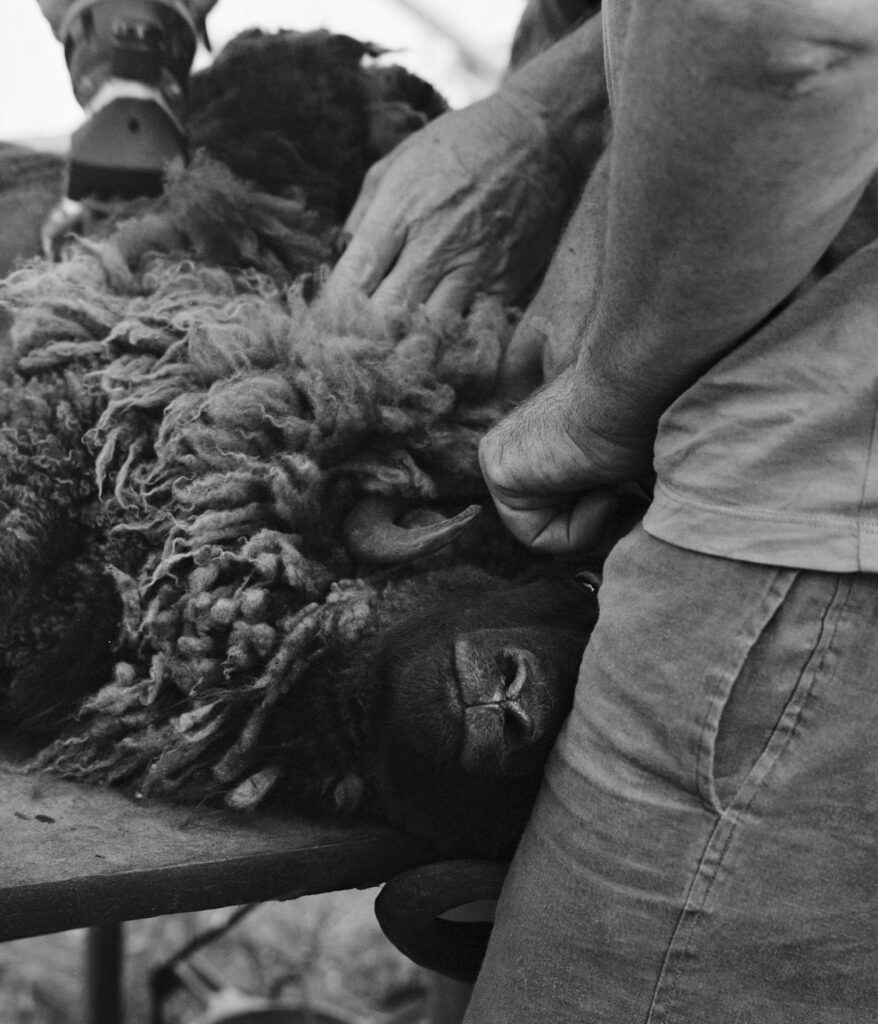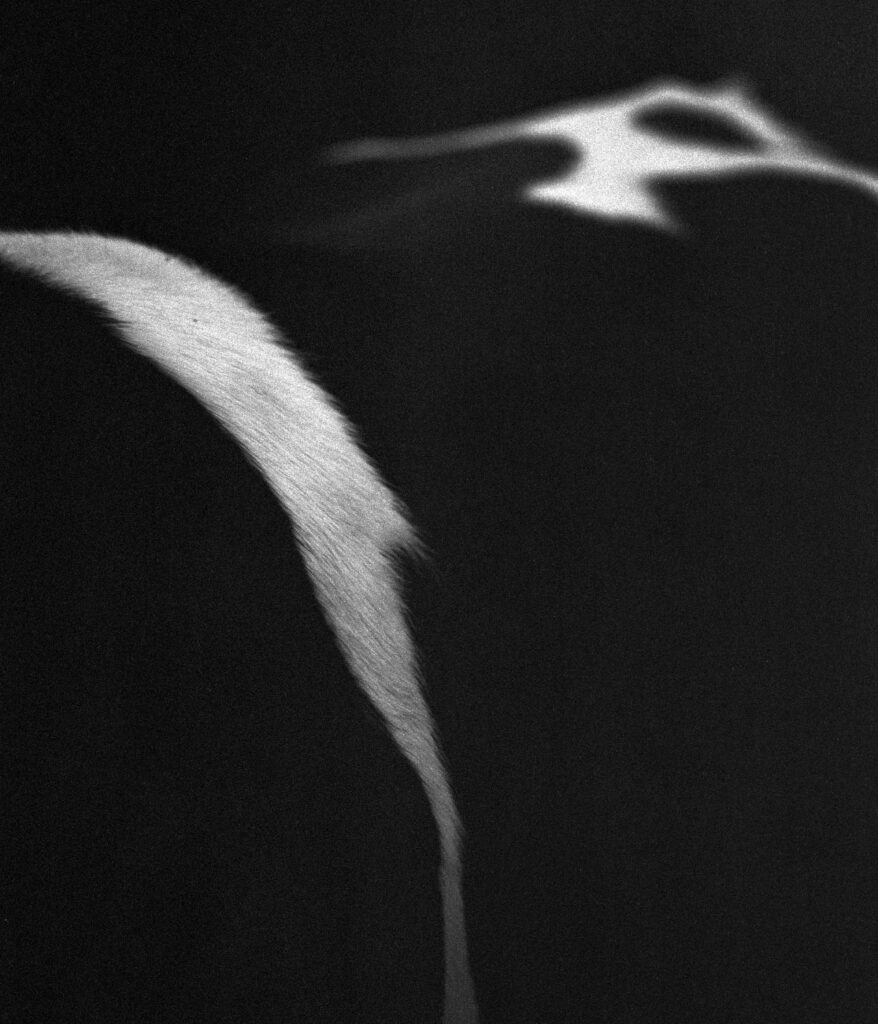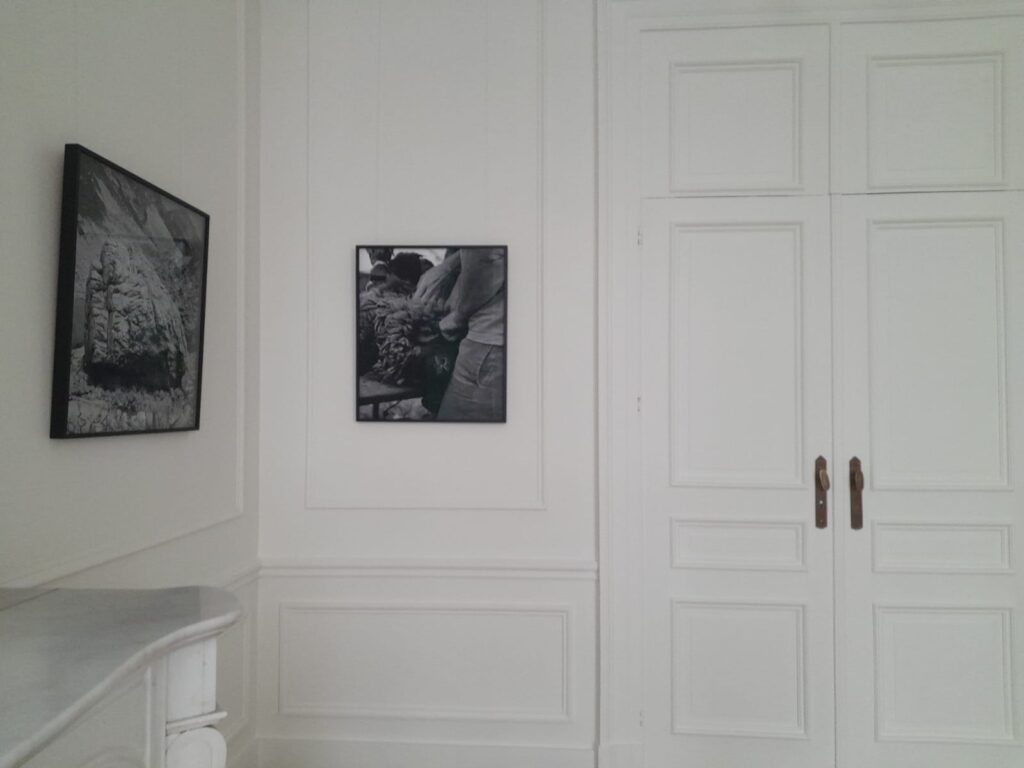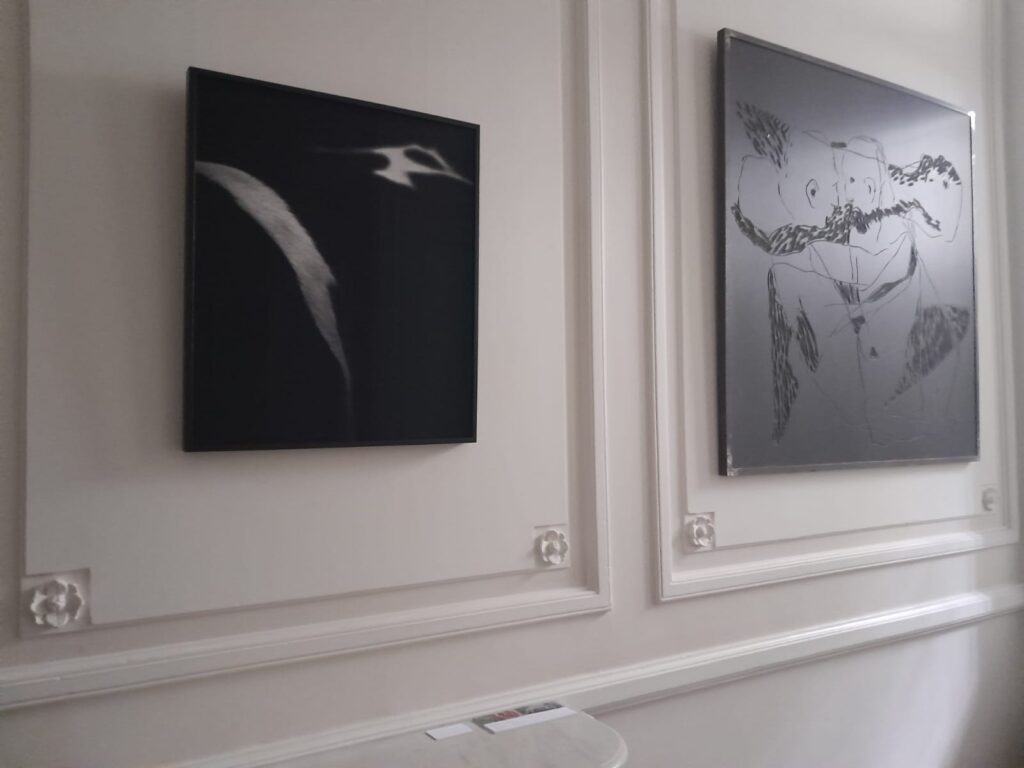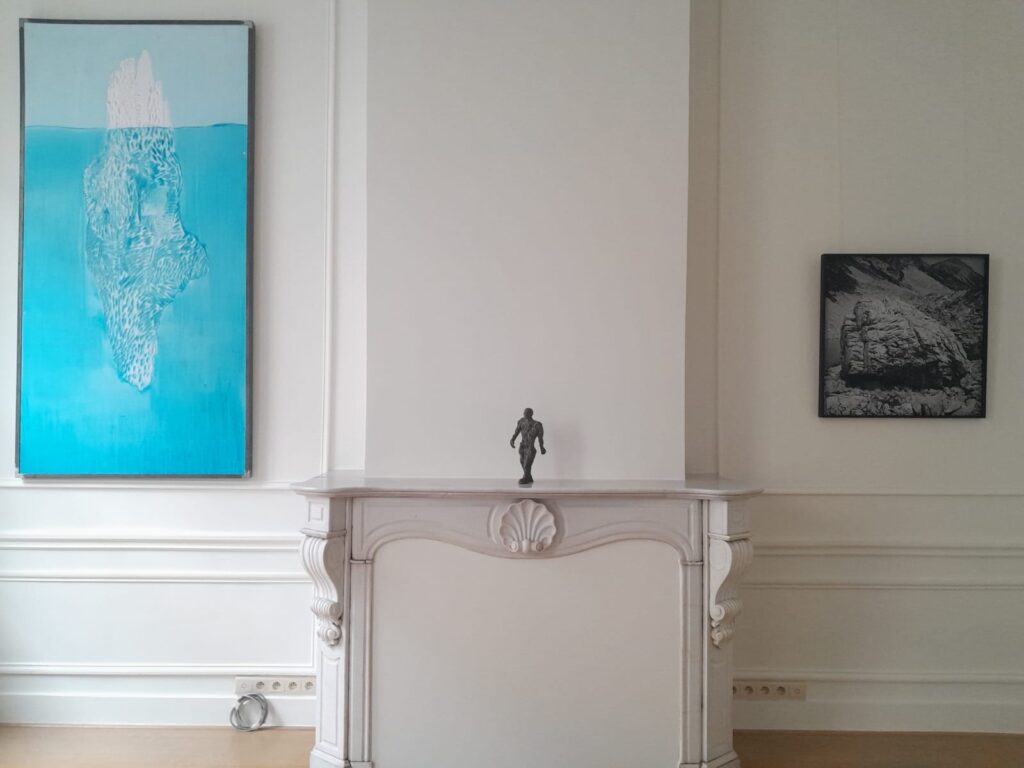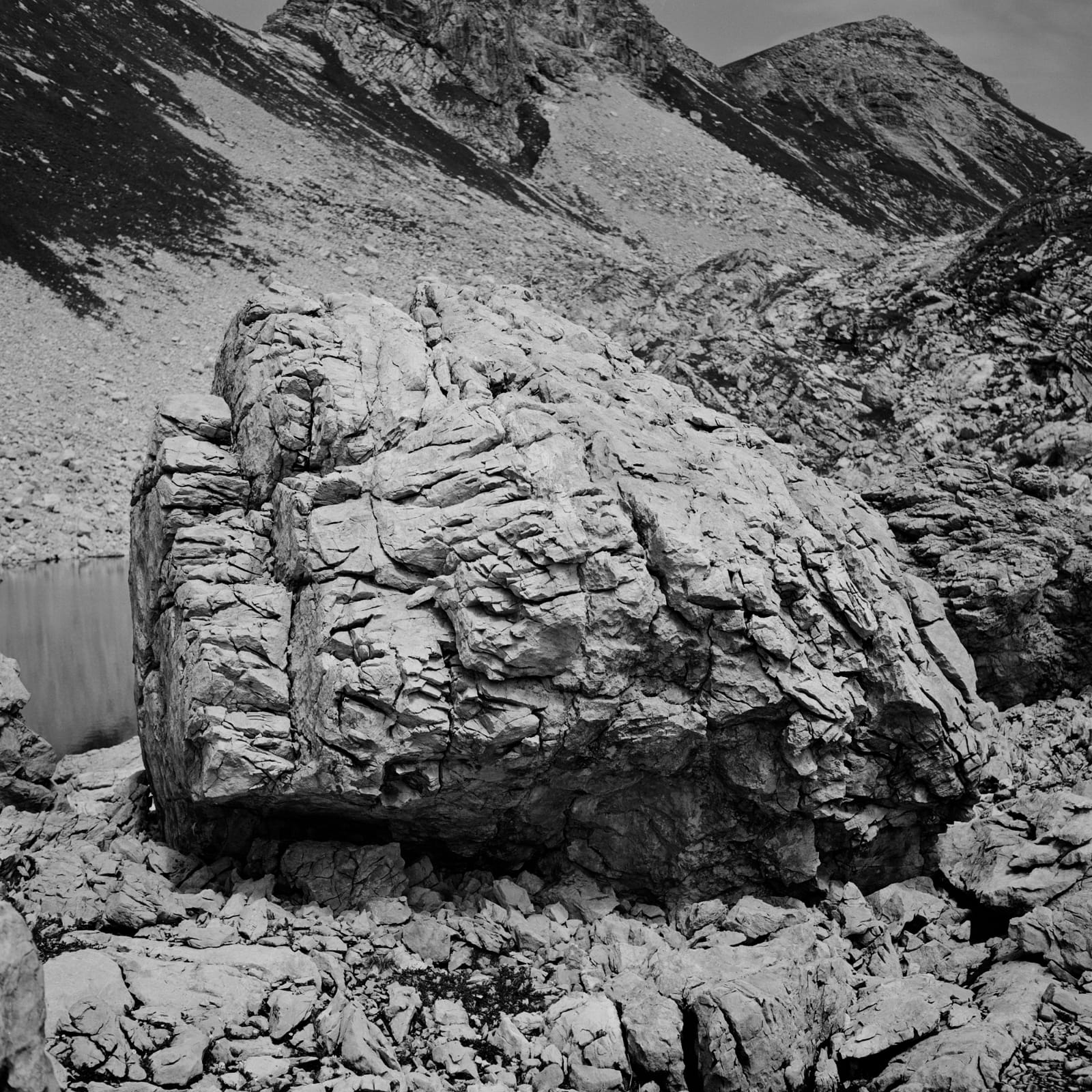
-
Simon Debbaut-L’Ecluse (°1993, BE)
from 20/01/2023 to 25/02/2023
Gesenkter
Debbaut-L’Ecluse’s world is more archaic than contemporary, more ancient than postmodern, more eternal than provisory. The photographer is a temporary witness that will not survive what is photographed itself. The rock, the mountain, the hill may be there for a while, but the human being? No, he is no more than a breeze. Human lives are brief compared to an eroded rock or a slow-growing tree.
Human beings stand bent over looking down, down to the ground, down to the earth. Turned downwards. Petrified. Or as the photographer himself described it: Rock, skin, bluestone, fur, bark are reduced to one matter. A world as a sculpture garden of busts and torsos, marble with flesh, where the photographer leans over his camera with his bent back and takes us into landscapes where Sisyphus, Atlas, Noah, Sirens or Icarus would feel at home.
From Stephan Vanfleteren’s afterword in the book ‘Gesenkter’, December 2021
Man is made of such crooked wood that you cannot hammer anything straight out of it, wrote the German philosopher Immanuel Kant. For Ghent-based photographer Simon Debbaut-L’Ecluse (29), the same applies to the landscape. ‘There are imperfections everywhere. There is always a darkness. Think of the fear you can feel in the mountains or the forests. Or your instincts acting up when you’re standing on a cliff.’
For Debbaut, landscapes tell many stories. With his old Hasselblad, he travels to places that carry a piece of history or are important to him. He does not reveal the where and the why. ‘I like to leave things in the middle. That gives me a lot of freedom. I photograph what fascinates me and what I find beautiful, but also what scares me. I want to make a kind of tension palpable.’
The fact that Debbaut is actually primarily a portrait photographer explains why, among the narrative landscapes in his book ‘Gesenkter’, people nevertheless pop up. Pure and therefore vulnerable. Has he known them for some time? Has he met them on his trips? Once again, the mystery is too beautiful to be unravelled.
For the title of his book Debbaut was inspired by a work from German artist Käthe Kollwitz: ‘Gesenkter Frauenkopf’. ‘A beautiful word. Mainly that. But it also suits the thoughtful person I am. And the way I take photographs: bent over my Hasselblad.’
Ann Welter, De Tijd, dd. 02/08/2022
